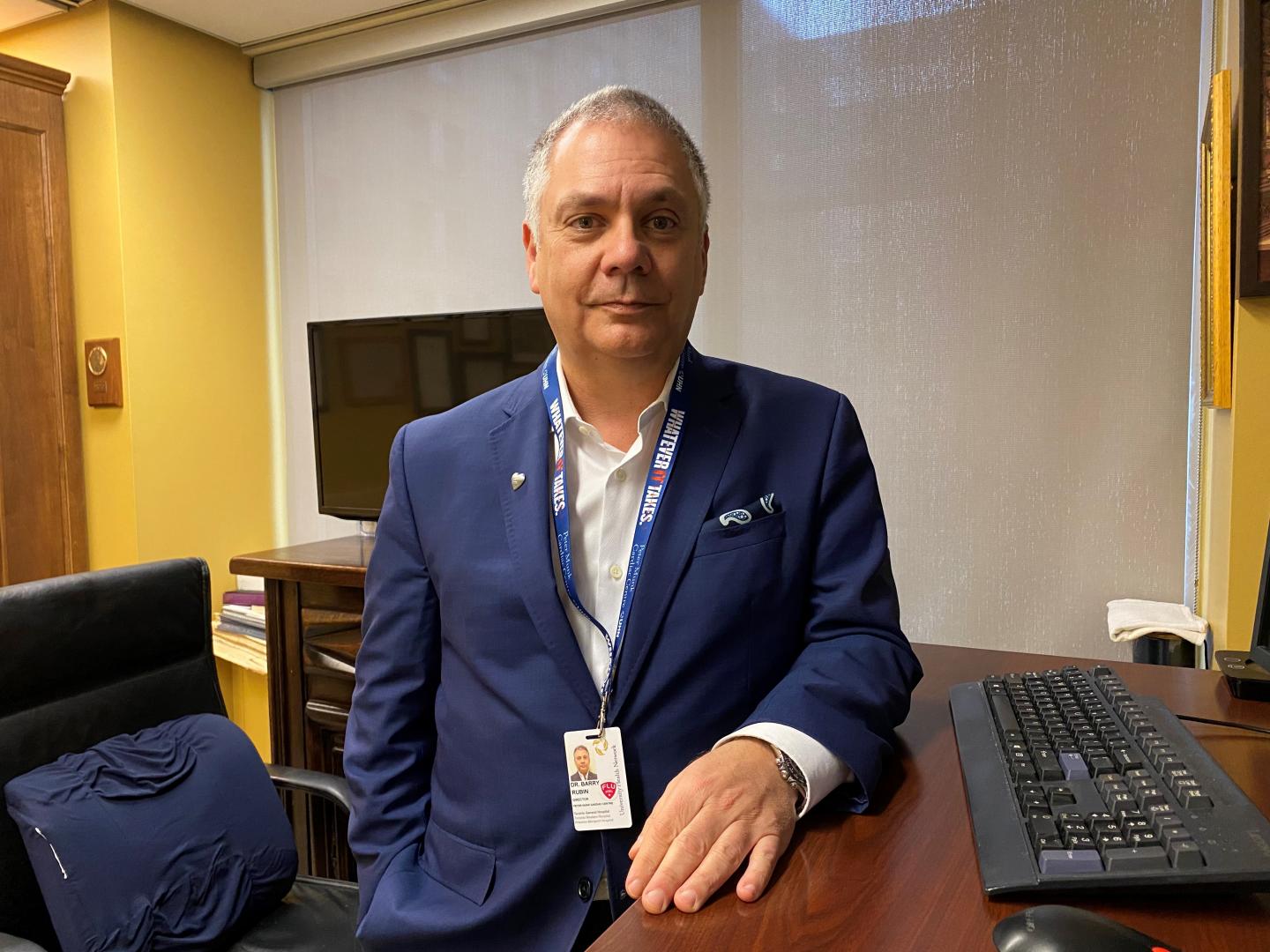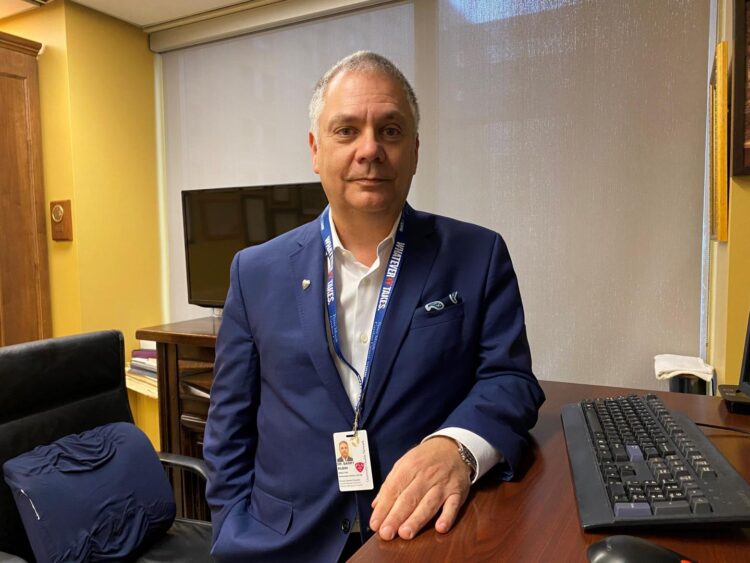Physicians, nurses and allied health staff at the Peter Munk Cardiac Centre, UHN, were surveyed for distress and burnout.

Credit: UHN
Toronto (Jan. 12, 2021) – More than half the clinicians surveyed at the Peter Munk Cardiac Centre reported burnout and high levels of distress according to a series of studies published today in the Canadian Medical Association Journal Open (CMAJ-OPEN). In these studies carried out before the COVID-19 pandemic, 78% of nurses, 73% of allied health staff and 65% of physicians described experiencing burnout.
“In my 35 years as a physician I have never seen a more serious issue for clinicians than burnout,” says lead author Dr. Barry Rubin, Chair and Medical Director, the Peter Munk Cardiac Centre, UHN.
Completed in 2019, the study used the Well-Being Index, a survey tool developed by the Mayo Clinic, a globally recognized academic medical centre. 414 physicians, nurses and allied health staff answered a series of questions about the level of stress they experienced in the previous month.
The index measured fatigue, depression, burnout, anxiety or stress, mental and physical quality of life, work-life integration, meaning in work and distress.
The study also evaluated the respondent’s perception of the adequacy of staffing levels, and of fair treatment in the workplace. The results were then compared to outcomes for corresponding healthcare professionals at academic health science centres in the United States.
Main Findings and Impact:
- 78% of nurses, 73% of allied health staff and 65% of physicians described burnout in the month prior to when the survey was administered.
- 79% of nurses, 56% of allied health staff and 55% of physicians had high levels of distress.
- Lower levels of distress among all clinicians were associated with a perception of fair treatment at work and a perception of adequate staffing levels.
The impact of burnout on clinicians can include extreme fatigue, professional dissatisfaction, job turnover, decreased quality of life, and thoughts of suicide.
“Burnout also has a negative impact on the care we provide,” says Dr. Rubin. “It is associated with an increased incidence of medical errors, serious safety events, readmission to hospital, worse patient outcomes and in some situations even increased patient mortality. Clinician burnout is a public health crisis that we must address now.”
The findings of these studies are the first step in acknowledging the existence, depth, and degree of distress and burnout among clinicians at the Peter Munk Cardiac Centre.
“Our next steps will be to meet with nurses, doctors and allied health staff, so that we can understand the key drivers of burnout in the PMCC and develop targeted intervention strategies,” says Dr. Rubin. “It is critical we address these issues and work together to bring about much-needed change. Healthcare workers give their all to care for others, it is time they are cared for too.”
###
These studies were funded by the Peter Munk Cardiac Centre Innovation Fund.
About the Peter Munk Cardiac Centre
The Peter Munk Cardiac Centre, established through the generous support of The Peter and Melanie Munk Charitable Foundation, is the premier cardiac centre in Canada. Each year, over 163,000 patients receive innovative and compassionate care from a multidisciplinary team who treat some of the most complex cases of heart and vascular disease. Our clinical and research expertise has improved the lives of patients around the world, while we continue to train more cardiologists, cardiovascular surgeons, and vascular surgeons than any other hospital in Canada. The Peter Munk Cardiac Centre is based at Toronto General Hospital, Toronto Western Hospital and Toronto Rehabilitation Institute – all members of University Health Network. For more information, visit http://www.
About the University Health Network
University Health Network consists of Toronto General, recently voted one of the Top 5 Hospitals in the World according to Newsweek Magazine, and Toronto Western Hospital, the Princess Margaret Cancer Centre, Toronto Rehabilitation Institute, and the Michener Institute of Education at UHN. The scope of research and complexity of cases at University Health Network has made it a national and international source of discovery, education and patient care. It has the largest hospital-based research program in Canada, with major research in cardiology, transplantation, neurosciences, oncology, surgical innovation, infectious diseases, genomic medicine and rehabilitation medicine. University Health Network is a research hospital affiliated with the University of Toronto.
Media Contact
Rosa Kim
Senior Public Affairs Advisor
Phone: 647 669 8416
Email: [email protected]
Media Contact
Rosa Kim
[email protected]





